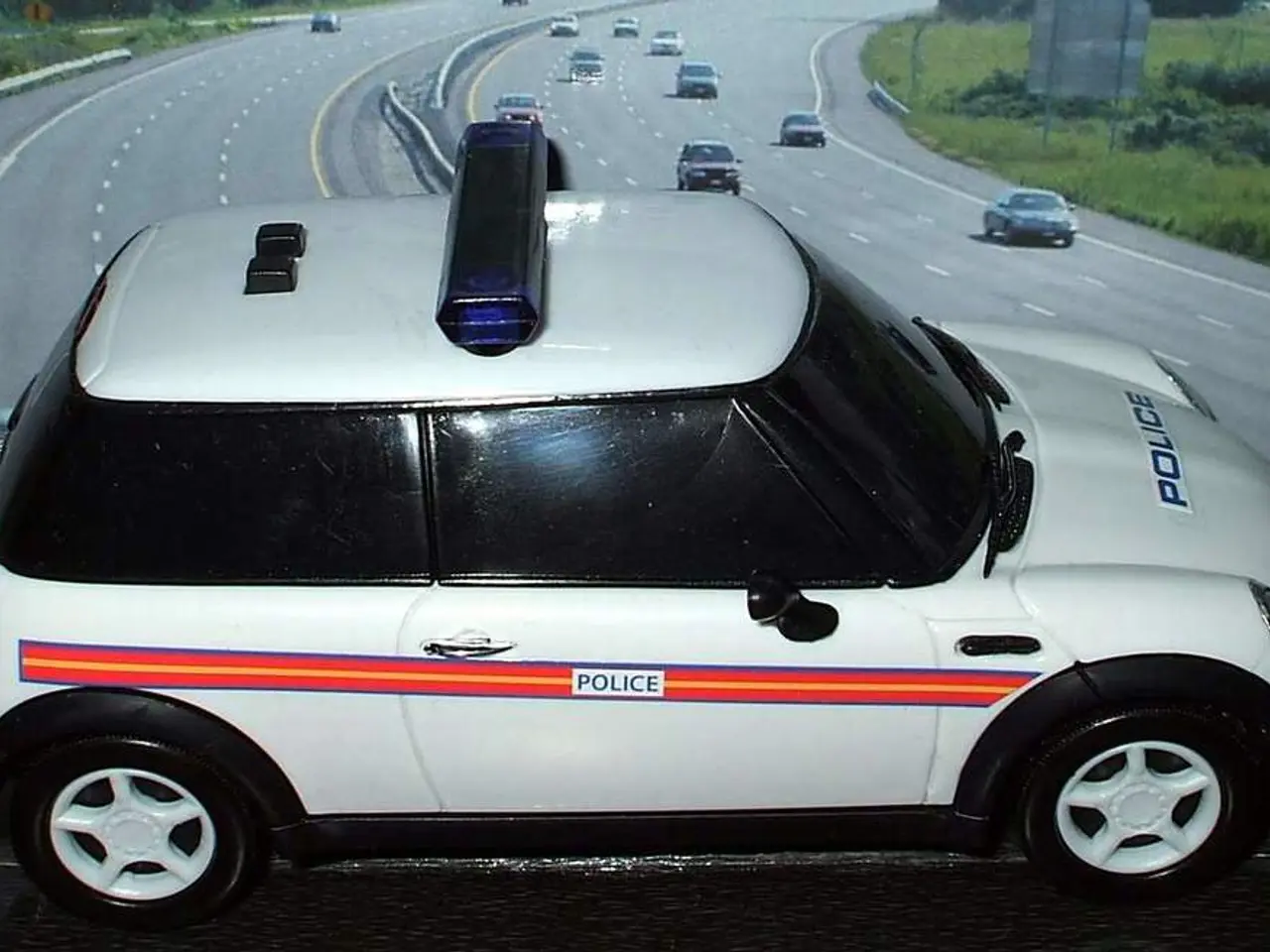Democrats criticism intensifies over Trump's D.C. enforcement measures; Mayor Bowser navigates a delicate balance
In the heart of the nation's capital, a long-standing tension between former President Donald Trump and Washington, D.C. Mayor Muriel Bowser continues to unfold, centred around crime and law enforcement.
Trump, speaking from his position as a former president and federal authority figure, has repeatedly threatened to assert federal control over the city, including mobilising the D.C. National Guard and taking control of the Metropolitan Police Department. Bowser, on the other hand, has generally responded with restraint, maintaining a low public profile amidst these threats [1].
This dynamic is rooted in D.C.'s unique federal relationship. Federal law allows the president to assume control of Washington's Metropolitan Police Department for up to 30 days during an emergency, as Trump did this week [2]. However, it is worth noting that residents of Washington, D.C. pay federal taxes, but the city does not have voting representation in Congress [5].
Bowser's approach marks a change from her more confrontational stance during Trump's first term. She now tries to navigate a delicate balance, aware of D.C.'s limited autonomy and vulnerability to federal intervention [4]. Behind the scenes, sources suggest Bowser and the Trump administration have maintained a "respectful and highly productive" working relationship [1].
Trump's actions include an order directing Bowser to provide the Metropolitan Police for federal use and a memorandum to the Defense Secretary to mobilise the D.C. National Guard [2][3]. Bowser described these moves as "unsettling" due to their implications on local control [2][3]. This is part of a broader pattern where Trump frames D.C. as needing federal intervention to restore order, while Bowser and city officials highlight statistics showing a decline in violent crime despite the rhetoric [4].
The House of Representatives is currently fighting to reverse a law enacted this year that froze $1 billion in city money for Washington, D.C. [7]. Meanwhile, the Senate passed a change to the law earlier this year, but the House has not yet made a move towards sending it to the president for his signature [8].
Justin Bibb, the mayor of Cleveland and president of the Democratic Mayors Association, has expressed concern about Trump activating the National Guard in cities [9]. Bibb's sentiments echo those of many who fear a potential overreach of federal power.
The history between Bowser and Trump includes heightened rhetoric, occasional administrative cooperation, and ongoing political jockeying over control of policing and National Guard mobilisation in the nation's capital. In the summer of 2020, Bowser criticised Trump for deploying federal law enforcement officers in the nation's capital and activating the D.C. National Guard to combat protests against police violence [6].
In June 2020, Bowser accused Trump of "inflaming" and "adding to the grievances" of protesters in a letter to him [6]. Despite these public disputes, Bowser has remained focused on making the most of the additional officer support from the federal government [3].
As the relationship between Trump and Bowser continues to evolve, it remains to be seen how this unique federal-local dynamic will unfold in the future.
- The disagreement between Trump and Bowser, rooted in the unique federal relationship of Washington, D.C., extends beyond general-news topics like crime and justice, also involving politics related to taxes, as residents pay federal taxes without having voting representation in Congress.
- In a broader political context, the ongoing power struggle between Trump and Bowser over control of policing and National Guard mobilisation in the nation's capital raises concerns about crime-and-justice issues, as well as the potential for federal intervention in local matters.




